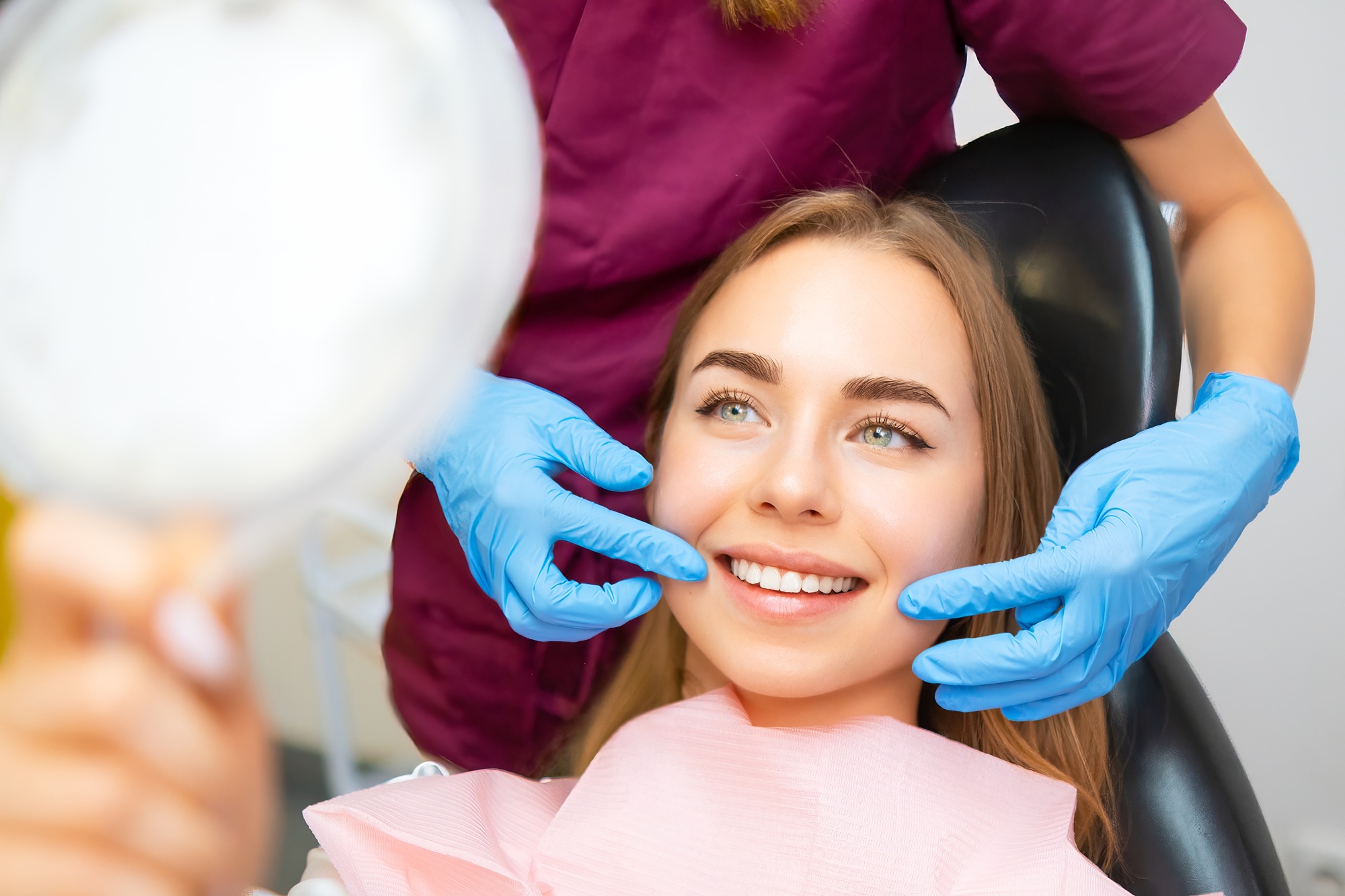
When you’re already brushing and flossing as recommended but you wonder if you could do more for oral hygiene and fresh breath, it’s time to consider tongue scraping. Your tongue is a surprising haven for bacteria and plaque.
While the name of the technique might lack a little glamor, the benefits on tap can help put your oral care over the top, creating noticeable results with a simple addition to your daily routine.
As dental cleaning experts, the Volterra Dental Comprehensive and Aesthetic Dentistry team recommends tongue scraping as an effective step to boost the efficiency of your home care oral hygiene routine.
However, tongue scraping is not a well-known technique like brushing or flossing. So, what is tongue scraping, and should you be doing it?
What is tongue scraping?
If, upon hearing the name, you imagine a dental care procedure in which you drag an instrument across the surface of your tongue, you’ve got the right idea.
It’s really as simple as that. Using a purpose-made device called, no surprise, a tongue scraper, you drag the rake or loop-shaped instrument over the rough surface of your tongue.
The bumps on your tongue, called papillae, create plenty of nooks and crannies where bacteria, dead skin cells, food particles, and plaque can gather. Even loosened debris from brushing and flossing could settle here if not effectively rinsed from your mouth.
A tongue scraper loosens and dislodges material trapped at the base of the papillae, freeing it for removal through rinsing.
How is tongue scraping performed?
Adding tongue scraping to your oral care routine is easy. When you’re done brushing and flossing, use light pressure to drag the scraper from back to front, once or twice, rinsing after each pass. Scraping shouldn’t damage your tongue or hurt. If it is, you’re using too much pressure.
Follow the scraping with a quick rinse of your mouth, and you’re done. Clean your scraper and store it with your toothbrush. Tongue scraping adds mere seconds to your routine.
The Benefits of Tongue Scraping
Research supports the tangible benefits of tongue scraping as a worthwhile addition to brushing and flossing.
Improved Taste Perception
Twice-daily tongue scraping helps your taste receptors work better. Don’t be surprised if food tastes a little brighter or fresher once your tongue is free of the tarnish of previous debris.
Reduced Bacteria
Most of the bacteria on your tongue are beneficial, but two types of bacteria that reside there are responsible for both bad breath and tooth decay. Tongue scraping reduces the population of these troublesome pathogens.
Better Breath
Tongue scraping works better than brushing to reduce odor-causing bacteria. When you’re consistent with your oral care practices, brushing and scraping are a powerful breath-freshening combination.
Tongue Appearance
An otherwise healthy tongue can have a coated appearance without the freshening effect of regular tongue scraping. You’ll maintain a healthy pink appearance for your tongue.
The combination of excellent home care and six-month visits to Volterra Dental for routine check-ups is the best way to prevent problems like cavities and gum disease. Book your next visit by phone or online today.

